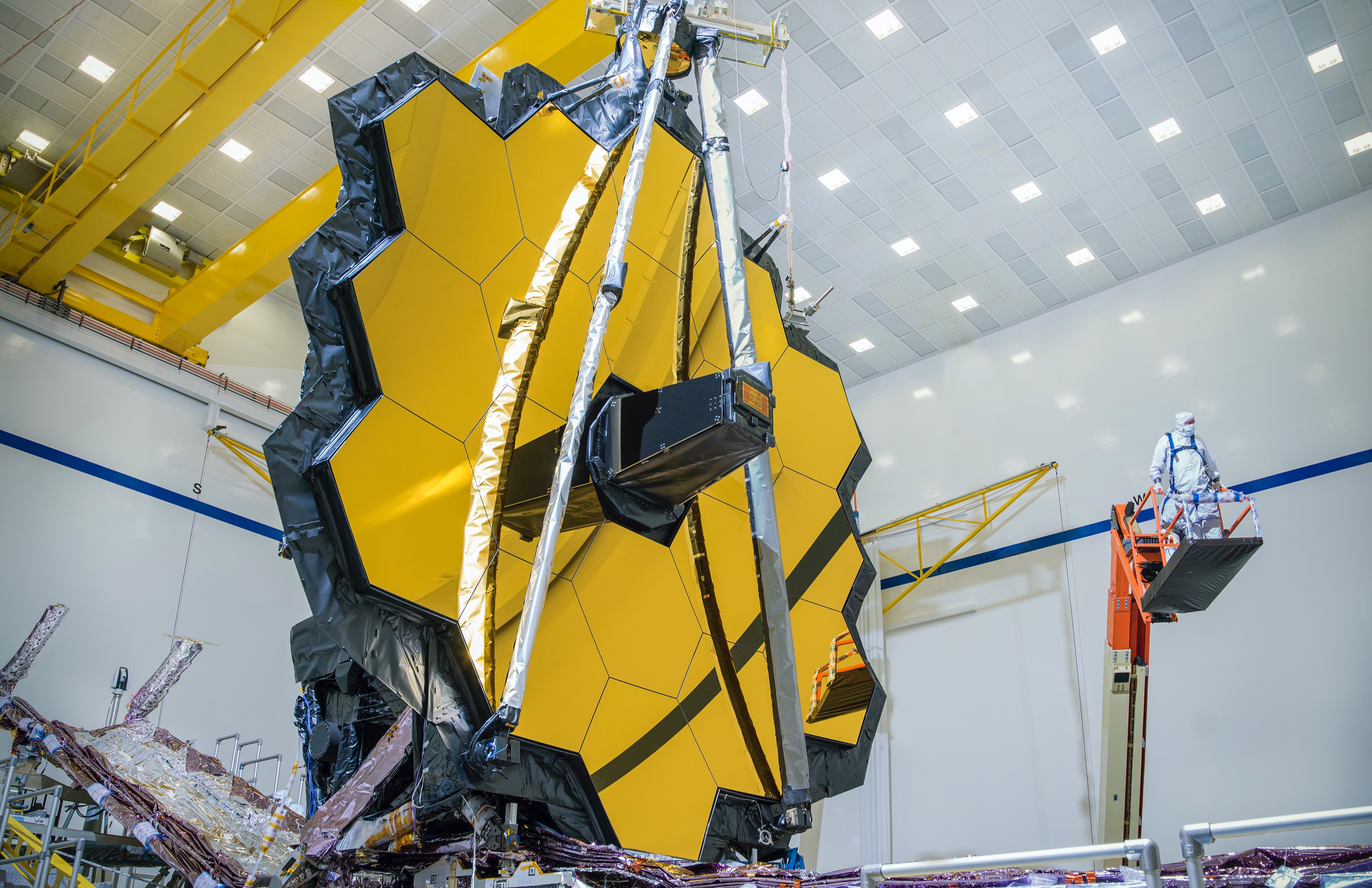Science News Roundup: English COVID study finds record prevalence in January; NASA's new space telescope reaches destination in solar orbit and more
With a final five-minute, course-correcting thrust of its onboard rocket, Webb reached its destination at a position of gravitational equilibrium known as the second Sun-Earth Lagrange point, or L2, arriving one month after launch, NASA officials said. Omicron survives longer on plastic, skin than prior variants; nose swabbing found best for rapid tests The following is a summary of some recent studies on COVID-19.

Following is a summary of current science news briefs.
English COVID study finds record prevalence in January
An English COVID-19 study reported record prevalence in January after an Omicron-fuelled spike in infections, Imperial College London said on Wednesday, adding that infections had dropped back from their peak but were now plateauing. England will on Thursday ditch mask mandates and COVID-19 vaccine passes introduced to slow the spread of Omicron. Prime Minister Boris Johnson has credited the success of Britain's booster rollout and the lower severity of the variant as he aims to live with COVID-19.
NASA's new space telescope reaches the destination in solar orbit
NASA's James Webb Space Telescope, designed to give the world an unprecedented glimpse of infant galaxies in the early stages of the universe, arrived at its gravitational parking spot in orbit around the sun on Monday, nearly a million miles from Earth. With a final five-minute, course-correcting thrust of its onboard rocket, Webb reached its destination at a position of gravitational equilibrium known as the second Sun-Earth Lagrange point, or L2, arriving one month after launch, NASA officials said.
Omicron survives longer on plastic, skin than prior variants; nose swabbing found best for rapid tests
The following is a summary of some recent studies on COVID-19. They include research that warrants further study to corroborate the findings and that has yet to be certified by peer review. Omicron survives longer on plastic and skin
COVID is less severe with Omicron than Delta, U.S. study suggests
The Omicron variant appears to result in less severe COVID-19 than seen during previous periods of high coronavirus transmission including the Delta wave, with shorter hospital stays, less need for intensive care and fewer deaths, according to a new U.S. study. However, the fast-spreading Omicron variant has led to record numbers of infections and hospitalizations, straining the U.S. healthcare system.
Analysis-A metaverse with Chinese characteristics is a clean and compliant metaverse
How will China's metaverse evolve? Look to the letter "c". Clean, censored, compliant and crypto-less is the view from experts. The descriptions point to the long shadow thrown by Chinese authorities who have already intimated they will have a heavy regulatory hand in how it will develop - a shadow some China metaverse advocates fear will stunt its growth.
Sinovac regimen gets strong boost from Pfizer, AstraZeneca or J&J COVID shots - study
A third booster dose of a COVID-19 vaccine made by AstraZeneca, Pfizer-BioNTech or Johnson & Johnson increases antibody levels significantly in those who have previously received two doses of Sinovac's CoronaVac shot, a study has found. The study found that CoronaVac received the strongest boost from a viral vector or RNA shot, including against the Delta and Omicron coronavirus variants, researchers from Brazil and Oxford University said on Monday.
China to allow gene-edited crops in push for food security
China has published trial rules for the approval of gene-edited plants, paving the way for faster improvements to crops as it seeks to bolster its food security. Gene editing - or altering the genes of a plant to change or improve its performance - is viewed by some scientists as less risky than genetically-modifying them, which involves transferring a foreign gene.
(This story has not been edited by Devdiscourse staff and is auto-generated from a syndicated feed.)
ALSO READ
Sri Lanka Looks to Overcome Pressure in T20 World Cup Showdown Against England
Spin Showdown Looms: England vs. Sri Lanka in T20 Showdown
England's Wake-Up Call: Ready for Redemption in T20 Super 8s
Biopharma Battle: BioNTech Sues Moderna Over COVID-19 Vaccine Patent
Henry Pollock: England's New Shining Star in the Six Nations










